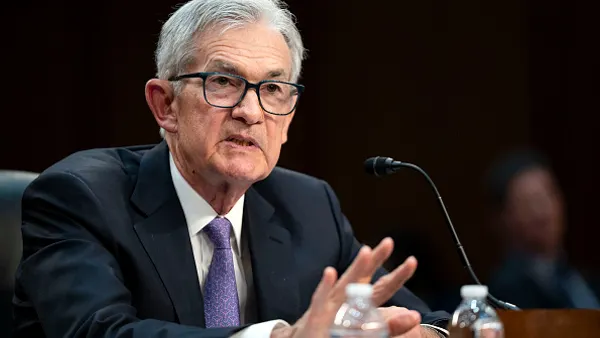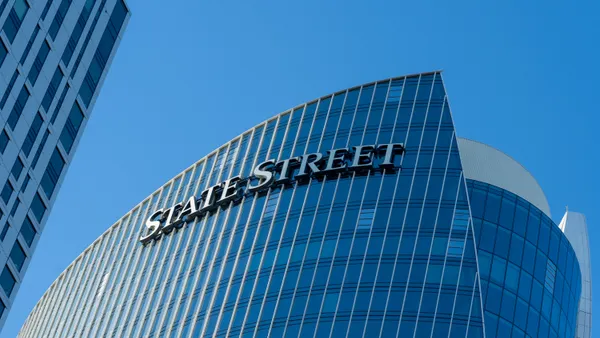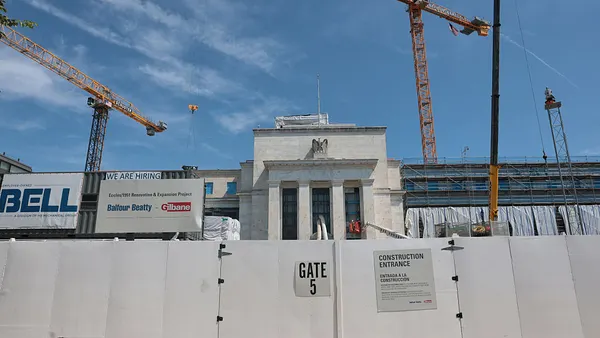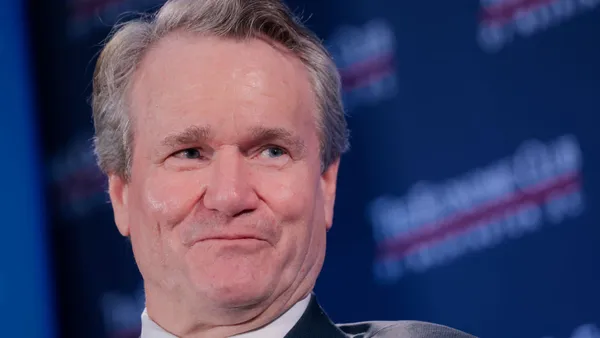Several additions to the Secure and Fair Enforcement (SAFE) Banking Act could help the bill gain the support of Republican lawmakers who have historically refrained from voting in favor of cannabis legislation.
The bill would create protections for financial institutions that provide services to cannabis-related businesses. But language in an updated text of H.R. 1595, which was obtained by Politico, clarifies the bill also applies to manufacturers of hemp and cannabidiol businesses.
Another update appears to address "Operation Choke Point," the Justice Department's controversial initiative that investigated banks' ties to firearms dealers and payday lenders, industries believed to be linked to money laundering. The DOJ operation lasted from 2013 to 2017.
The updated section states federal banking agencies "may not formally or informally request or order a depository institution to terminate a specific customer account or group of customer accounts or to otherwise restrict or discourage a depository institution from entering into or maintaining a banking relationship with a specific customer or group of customers" unless the agency has a valid reason.
Such a reason cannot be based solely on reputational risk, the update also states.
"The hemp language, I predict, will get Sen. [Mitch] McConnell's attention," Rep. Andy Barr, R-KY, told Politico. "The anti-Choke Point language, I predict, will get [Senate Banking Committee Chair Mike Crapo]'s attention."
Mayra Rodriguez Valladares, a capital market consultant and trainer who works with banks on risk and management issues, said banks will welcome the relief from increasing pressure to abstain from or exit certain sectors.
"The big banks have been under a lot of pressure not to be involved with detention centers, the firearm industry and fossil fuel," Valladares told Banking Dive. "They'll be happy not to have one more thing they're told they can't be involved in."
Industrywide support
The updated language comes as the House prepares to vote on the bill next week. Meanwhile, Crapo, R-ID, said he plans to hold a Senate vote on similar legislation by the end of the year.
Four trade associations are also calling attention to their support of the SAFE Banking Act in a joint letter that was sent to House leadership Thursday, urging lawmakers to pass the bill. The industry groups are the American Bankers Association (ABA), the Credit Union National Association, the Independent Community Bankers of America and the National Bankers Association.
In addition to the joint trade group letter, the ABA released a second letter Thursday, showcasing the 50 state bankers associations that back the bill.
Although the industry trade groups and state bankers associations said they don't take a position on the legalization of cannabis, they said they are committed to serving their communities — including those that have voted in favor of legalizing the drug.
Eleven states and Washington, D.C., have legalized recreational marijuana, while 33 states have legalized the drug for medical use.
Valladares said the widespread support from industry associations is a sign of the country's changing attitudes toward pot.
"The wind is changing directions, in terms of gaining support," she said. "About a year ago or so, you had disparate opinions between the credit unions and the independent community bankers and everybody else."
There are also economic interests at heart, and the growing cannabis industry represents a largely untapped market for financial institutions, Valladares said.
"The banks are really struggling, especially some smaller ones, because of the net interest margin pressure with rates having gone down," she said. "[Banks] are looking for different ways to diversify their revenue streams."
Data firm Nielsen said it expects the U.S.'s legal cannabis market to reach $41 billion by 2025.
Not everyone's on board
Although the SAFE Banking Act has gained bipartisan support — the bill has 206 co-sponsors, including 26 Republicans — it has attracted opposition from civil rights groups and some progressives who say cannabis legislation should address social equity before industry interests.
Rep. Alexandria Ocasio-Cortez, D-NY, for example, "feels strongly that addressing racial justice should be the first priority," a staffer for the congresswoman told Marijuana Moment on Thursday.
Another New York lawmaker, Senate Minority Leader Chuck Schumer, also called for broader reform Thursday on Twitter.
"We need decriminalization at the federal level, criminal justice reform, and investment in opportunity for minority & women-owned small businesses," he tweeted.
Despite some opposition, Valladares said she thinks the support voiced by the state bankers associations will hold weight with most lawmakers.
"They have the ear of a lot of these local politicians," she said. "The last thing they want to do, being so close to an election, is upset these people."













